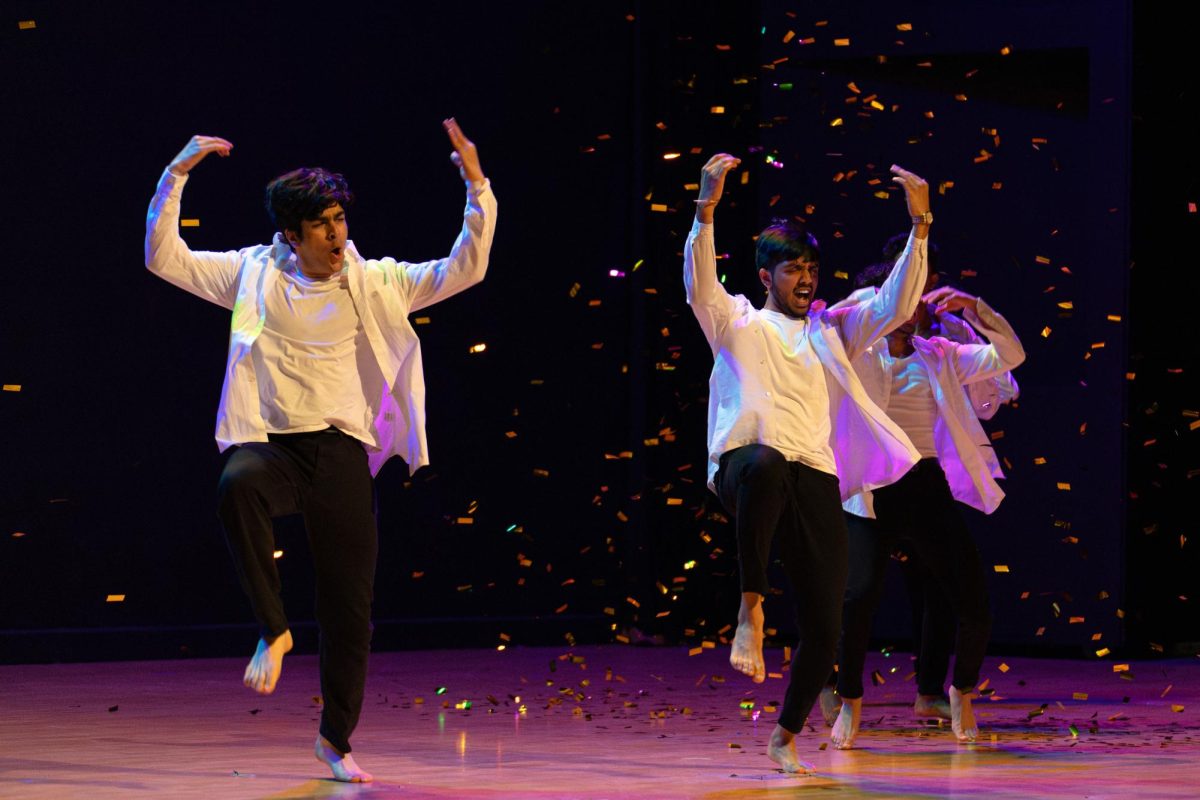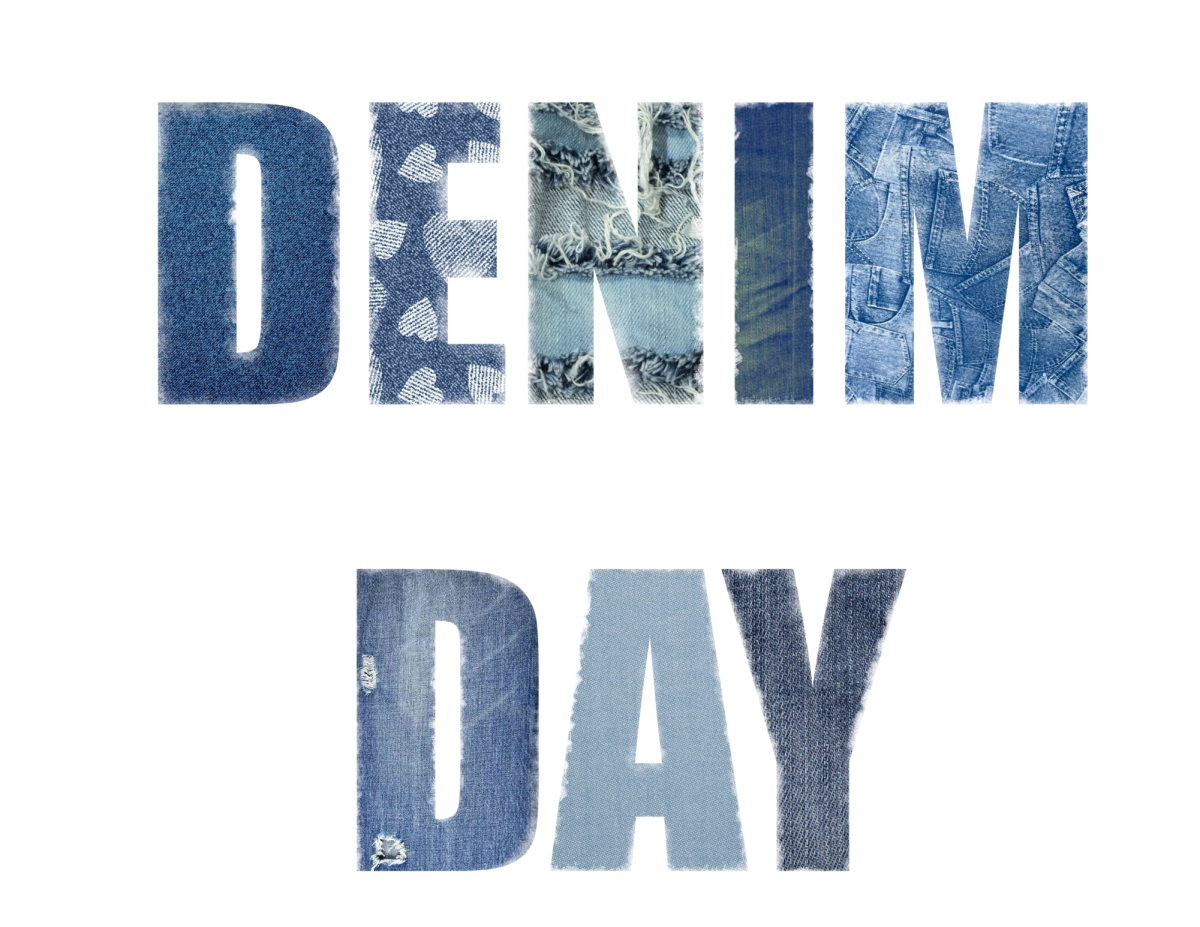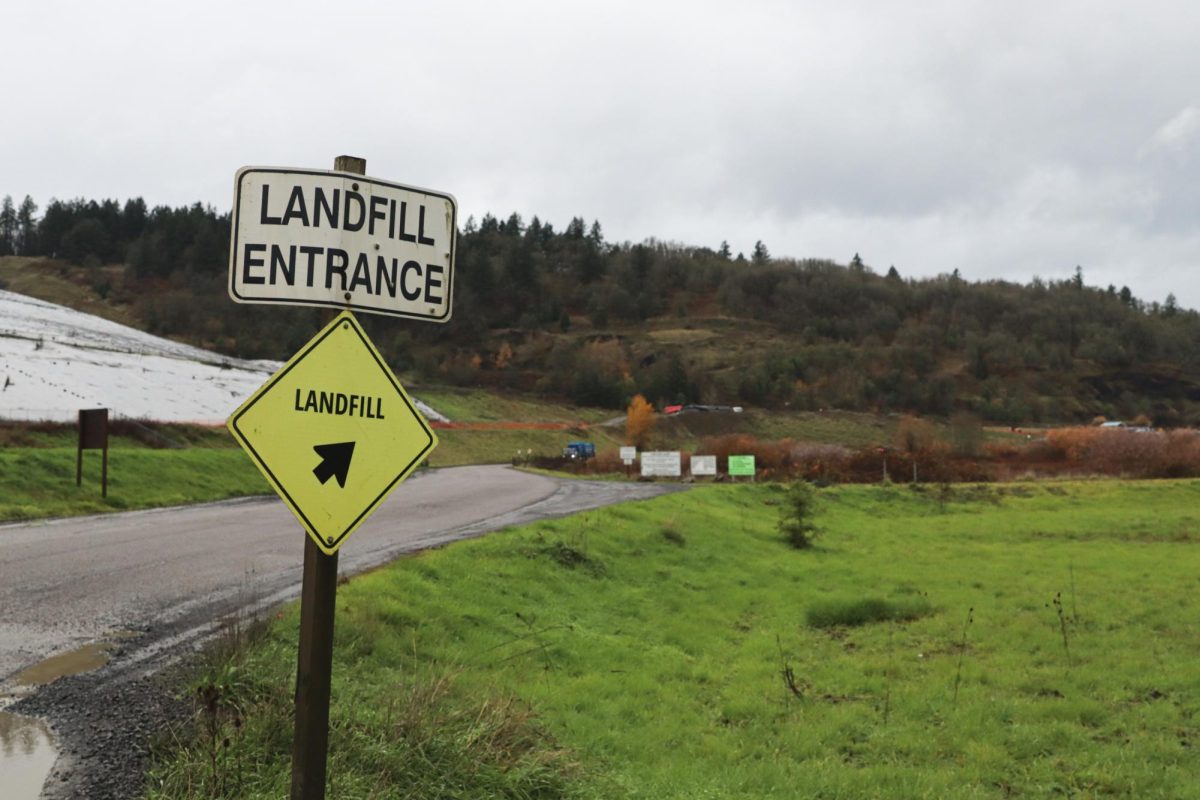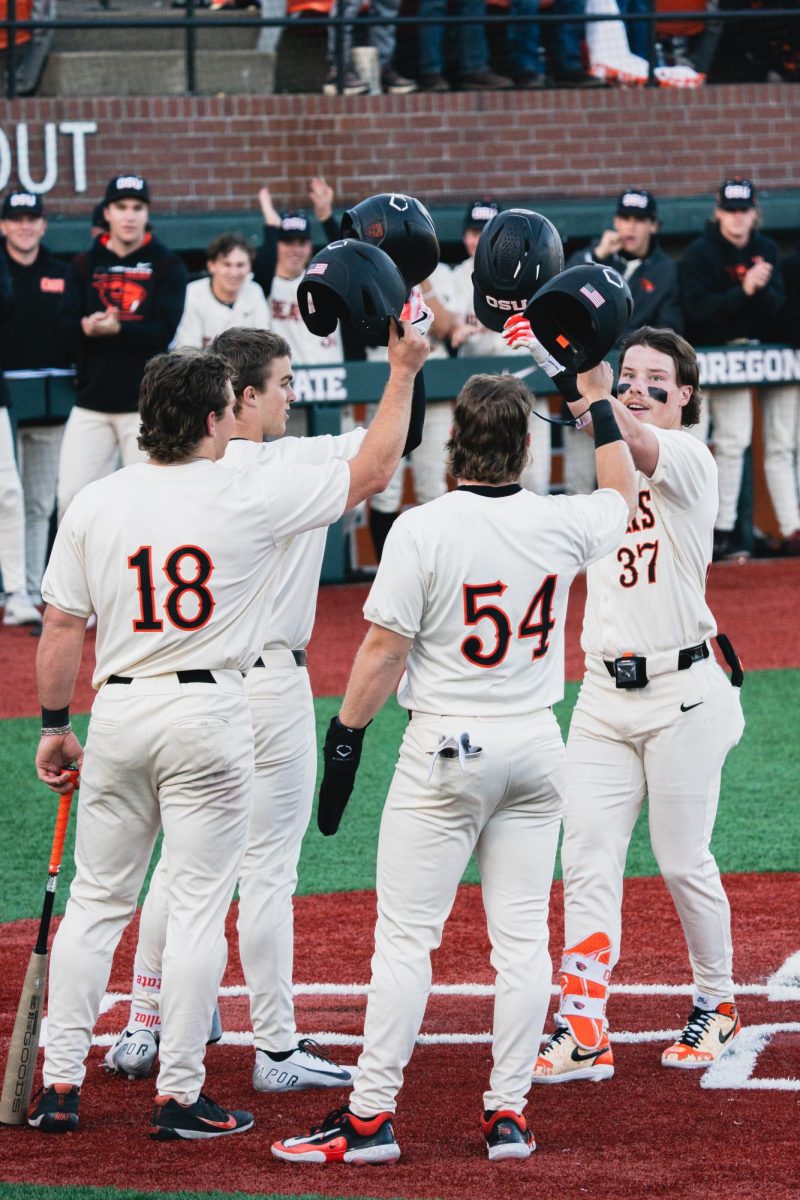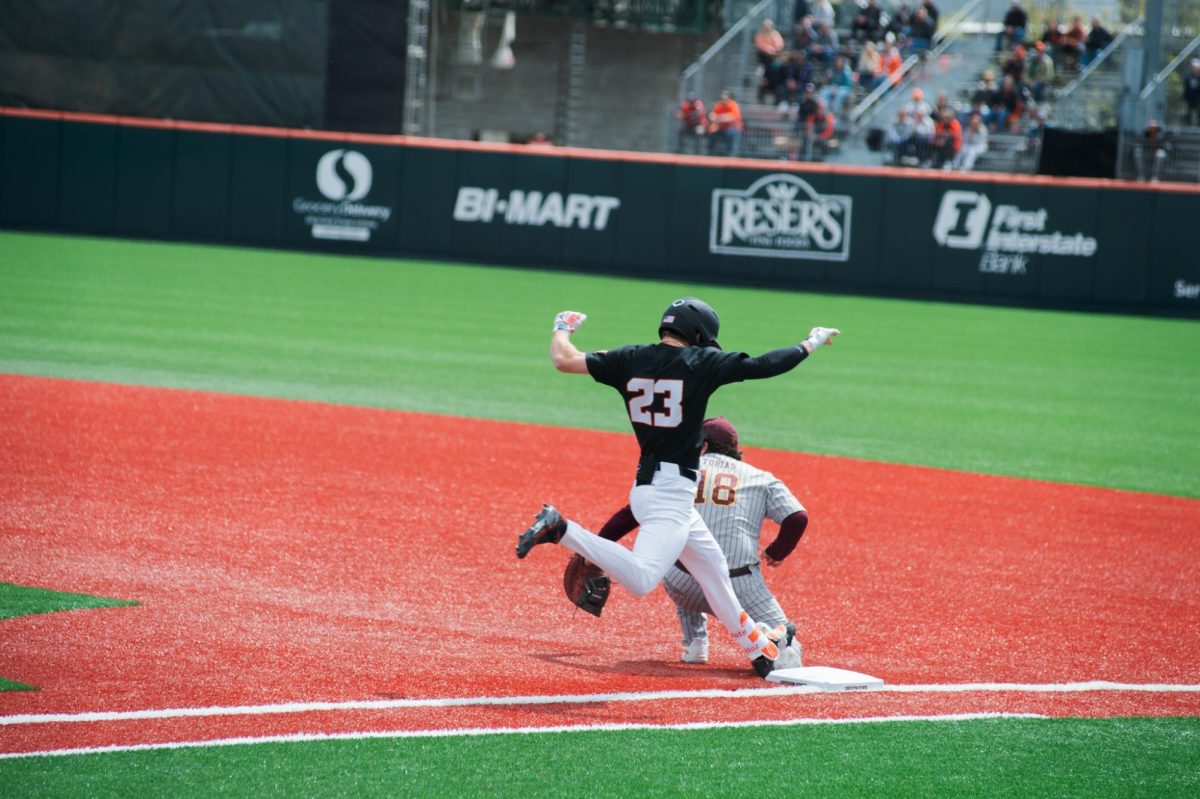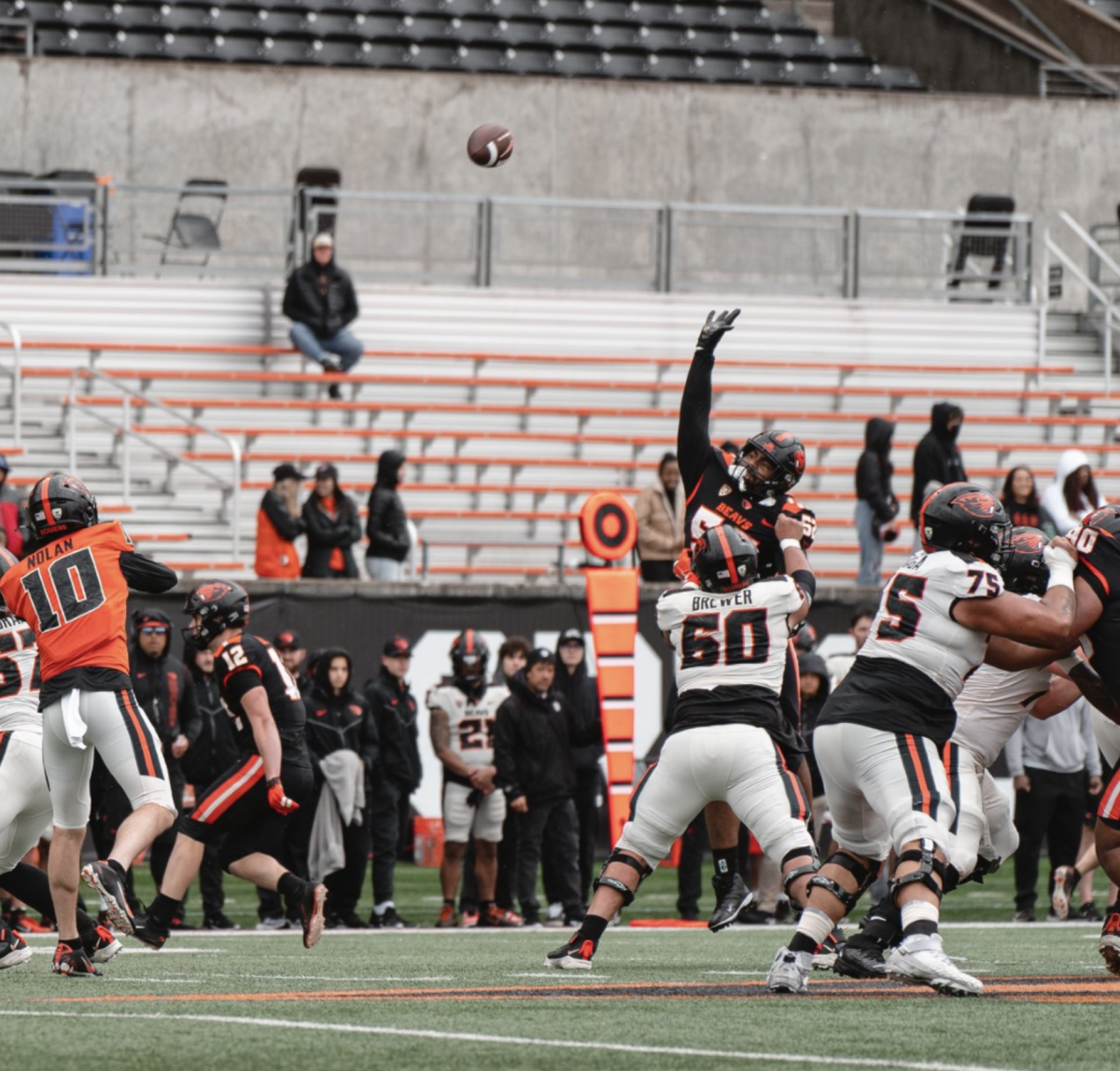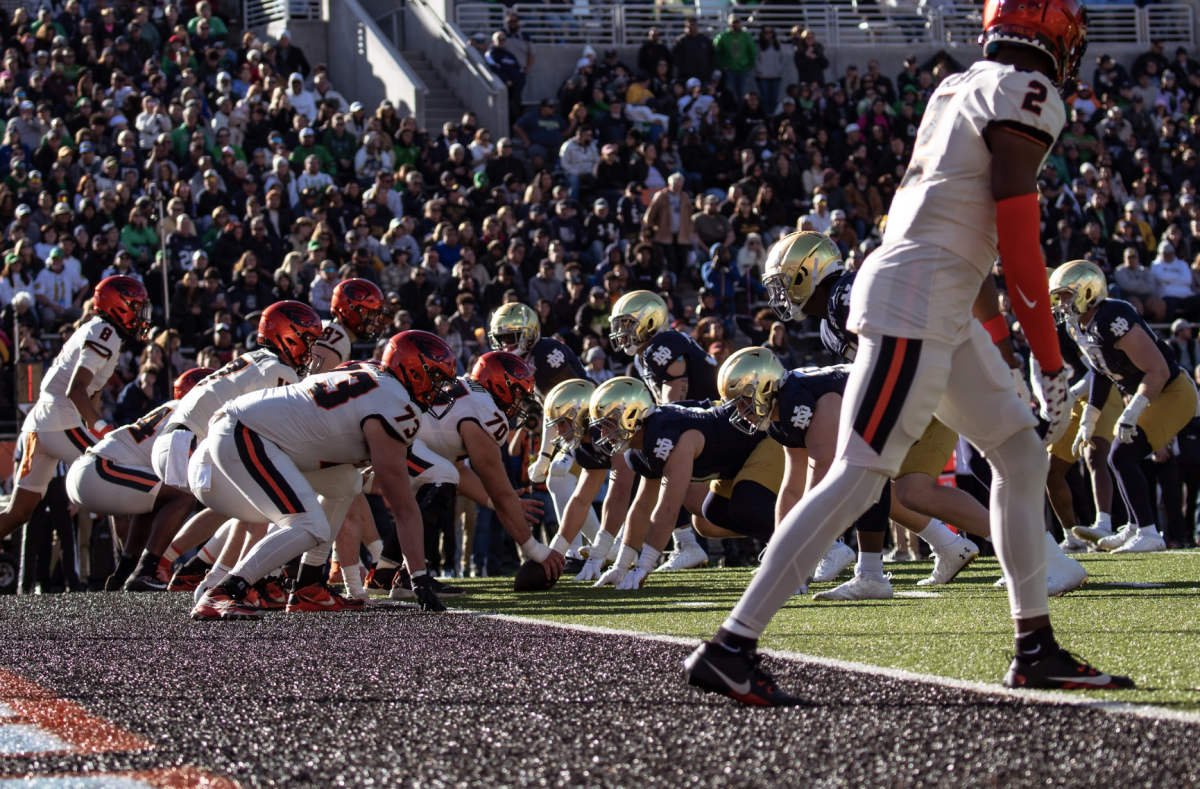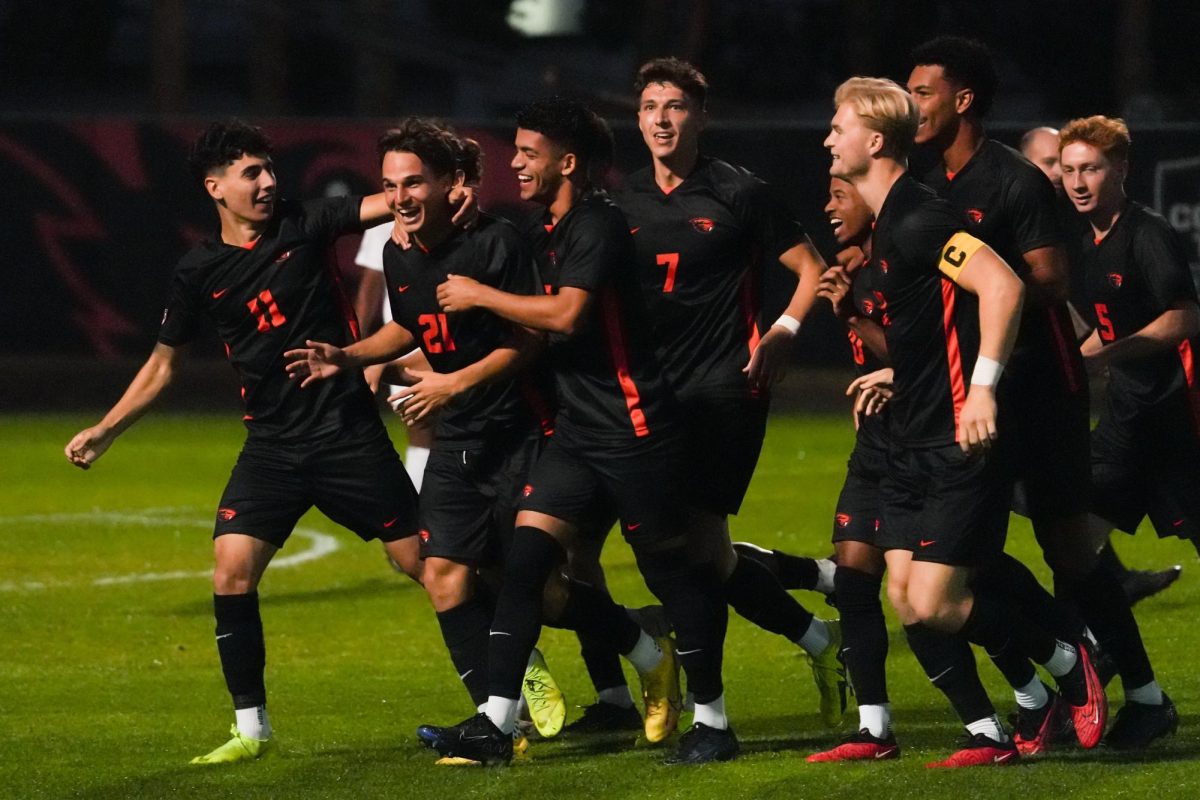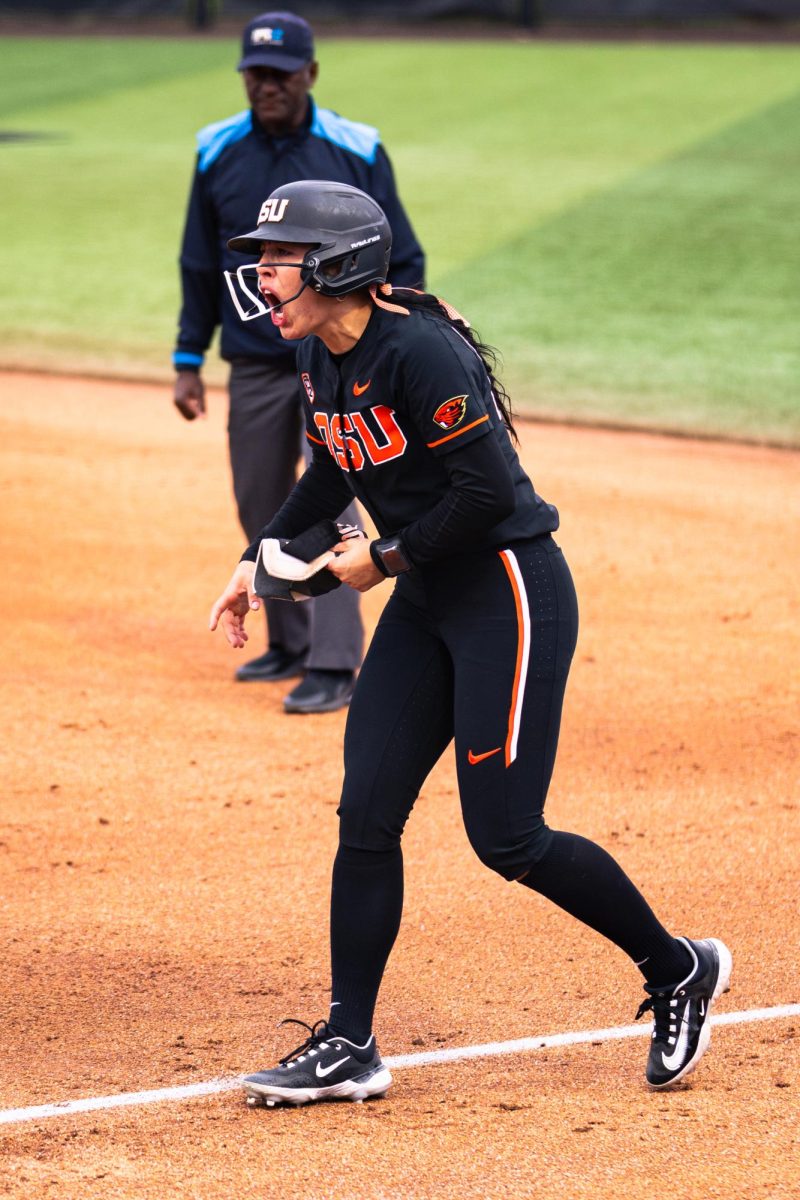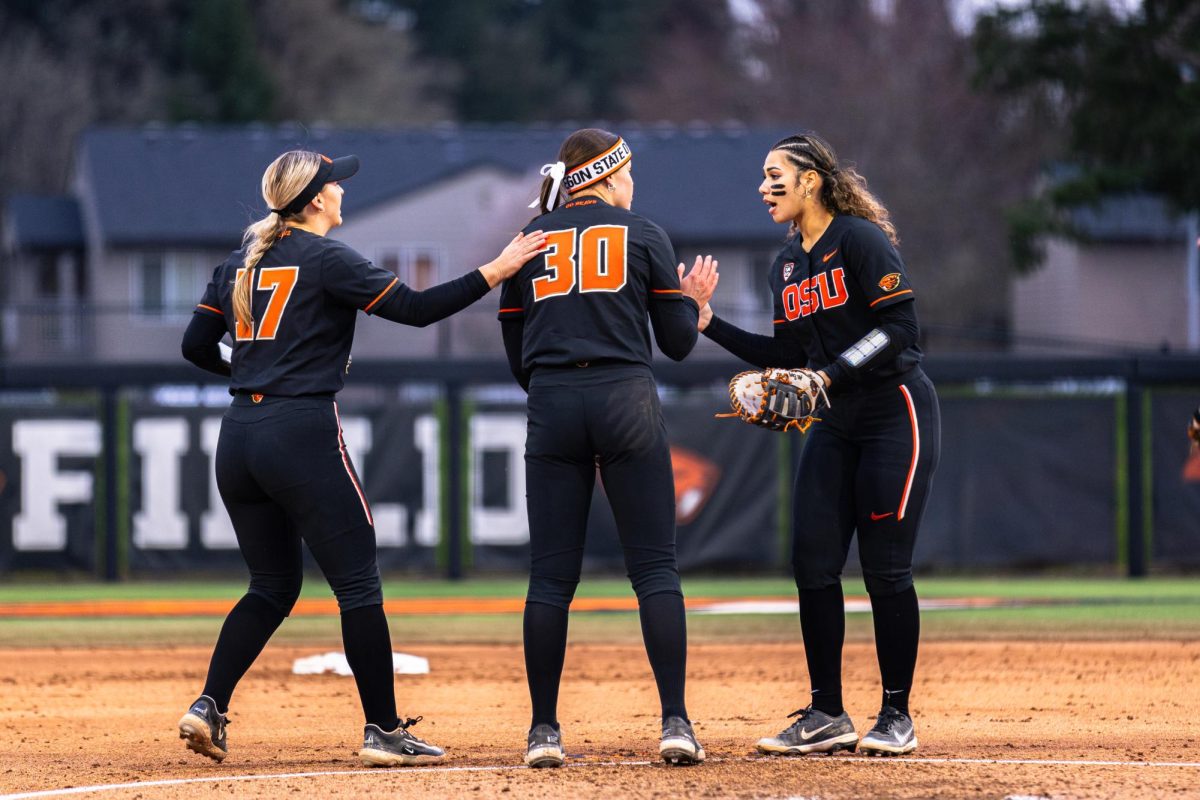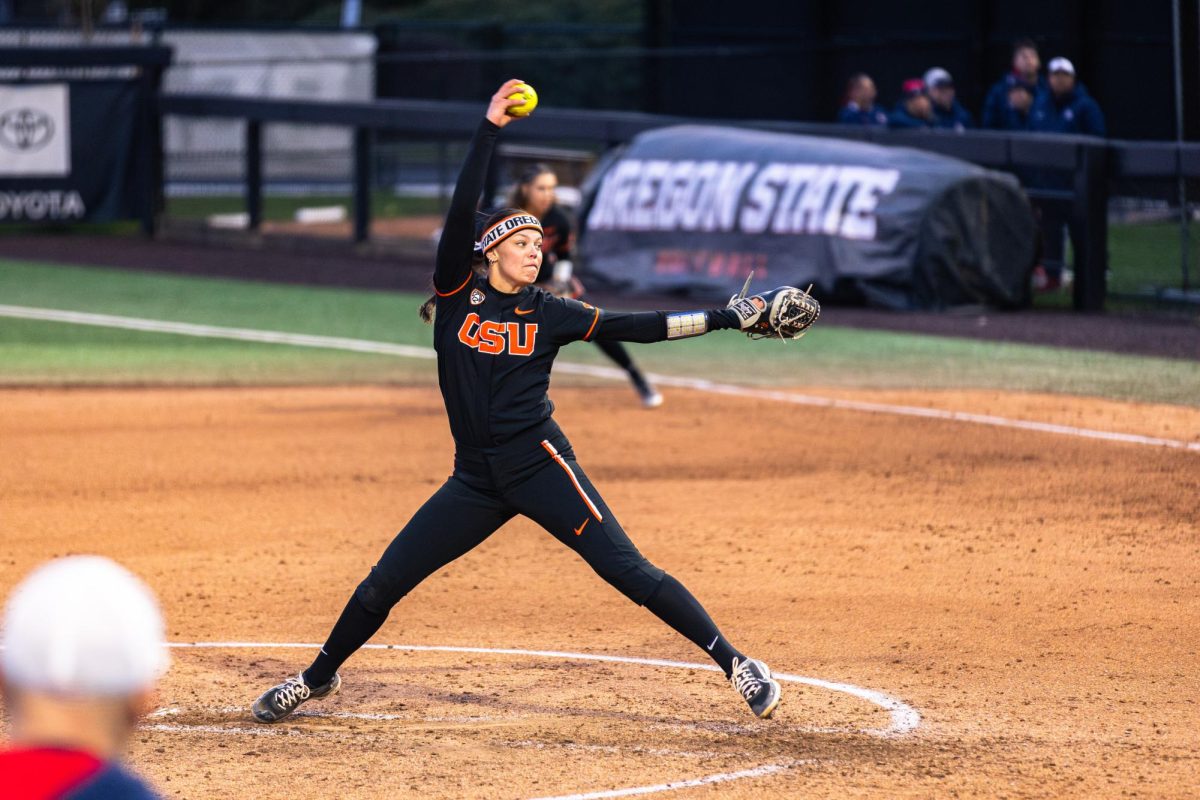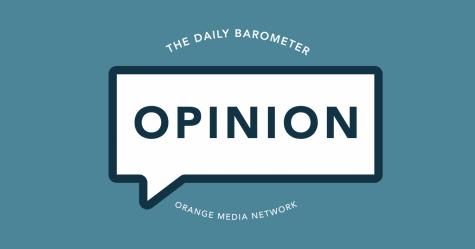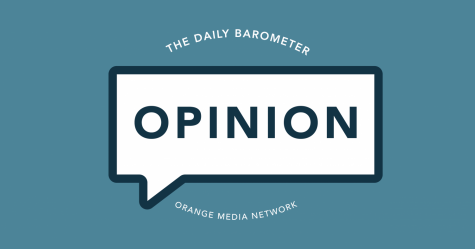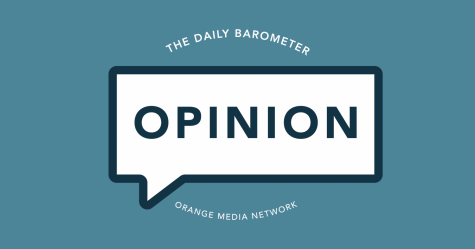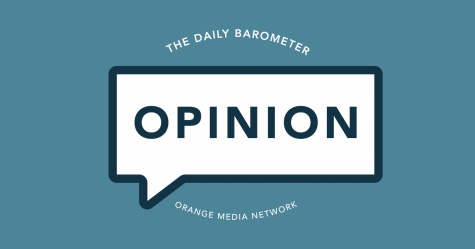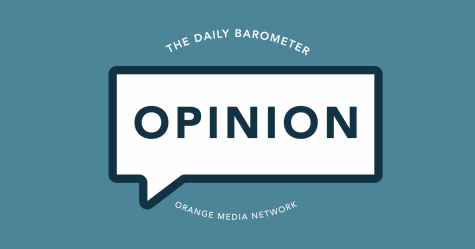Letters to the Editor: Week of Jan. 29
January 29, 2018
‘Wolf in Beaver’s Clothing’: A missed opportunity
I was very much impressed by the Barometer’s editorial and general reporting of the inflammatory viewpoints shared by Andrew Oswalt. Though many of us have an intuitive sense of what makes journalism fair and balanced, I was glad to see the editors explain in detail the elements of fair and transparent journalism. Centering the editorial around the maxim that “Democracy dies in darkness” is a timely message for every citizen –especially those who are elected to represent us in government.
That being said, I was disappointed by the choice of artwork accompanying the article. The illustrators explain that the “wolf in Beaver’s clothing” reminds us to be aware that those among us are not always as they seem. In a time when so many deep-rooted resentments are bubbling to the surface –whether it be racism, sexism, or any other form of prejudice— the piece is an apt and legitimate representation of many Americans’ fears. But in the context of the reporting, I firmly believe that the illustration was inappropriate if not downright irresponsible. As I’ve mentioned, the authors and editors have done an outstanding job both explaining the principles of fair journalism and then applying it faithfully to their reporting. But pairing the story with an image of a malicious “Wolf in Beaver’s clothing” stunts the editors’ appeal to open discussion and understanding. Even the hint of a personal attack or demonizing of the individual or group in question has no place in the Barometer; even if the overwhelming majority disagrees with their ideas.
The issues at hand are clearly sensitive ones; ones that deserves our attention and time. But we must also ask ourselves if adding provocative imagery to the discussion is really in our best interests. Though many of us, myself included, fundamentally disagree with Oswalt’s ideas, we would be doing ourselves a disservice to jump to an emotionally charged or vindictive conclusion. As Oswalt has said himself, being branded as a “Nazi” or racist” –unfairly or not—has profoundly shaped his worldview. The provocative image of the “wolf in Beaver’s clothing”, while not explicitly aimed at Oswalt, is yet another missed opportunity for nuanced understanding.
William Sato
Corvallis, Ore.
Your voice in matters in student government
Later this year, students will likely get the opportunity to vote on amending a document that many don’t interact with directly, but a document that nonetheless has an impact on several aspects of their student experience. That document is the ASOSU Constitution.
Though I am no longer a student at OSU, the ASOSU Constitution is dear to me. I, along with former ASOSU President Ryan Mann, spent several evenings drafting, and ultimately passing through the student body, the version that is in use today. Like the current members of ASOSU, we too had issues with the Constitution’s rigidity and wanted to make it more flexible (if you haven’t yet, check out the pre-2008 version in the archives, it’s an interesting read). We had a few key goals for the 2008 version: define the structure of the student government, provide more room for interpretation, and allow the students to have the final say on what ASOSU means to them.
The legislative branch transformed from a unicameral body to a bicameral body, the judicial branch was given an expanded role, and the student body’s voice was required to make amendments. With all of that in mind, I fully support the efforts to amend the ASOSU Constitution. The biggest challenge, and greatest strength, of this process will be attaining the 15 percent voter turnout and the 2/3 vote threshold required to adopt amendments.
This provision exists because we felt strongly that if changes were to be made to a document that impacts all students, the justification for those changes should compel a sizable number to vote. Your voice matters in your student government, whether you are voting on who represents you or how they represent you. If it doesn’t work the way you like, make it yours.
Jeremy Taylor
Former ASOSU Senate Chair
‘Alt-right’ is neither alternative nor right
During my four undergraduate years, I was engaged in the University of Kansas Student Senate. This body and the peripheral committees strive to make KU a great place to be – for all students. If ASOSU wishes to make OSU a great place to be, the student profiled in the Jan. 22 article (Oswalt) should
clearly be removed from the body. That does not go far enough. Students like this must be summarily expelled from the University for using their platform to spread bigoted white supremacist ideology. Clearly violating Code of Student Conduct.
If ASOSU members wish to wash the stain of racism from this school, this state, and this nation, it must begin here. How can we grant a degree with any intellectual honesty if it is granted to an outspoken white supremacist whose views and understandings of the human condition are so warped and discriminatory? ASOSU must work diligently to push the University to act and to stop its complicit endorsement of these deeply inhumane sentiments by allowing them to flourish in their classrooms and student government. If it is found to be – somehow – not in egregious violation of Student Code 4.3.5, 4.3.8, or 4.4.26, ASOSU must push themselves and the University to enhance the code to ensure that future displays of Nazism are not allowed (tacit endorsement). It’s flagrantly disingenuous to compare systematically violent rhetoric with “opinion” or “art.” When I look back, our student government is just one small part of the diverse community of Lawrence, Kansas. Its impact on people and KU is real nonetheless. In five years you may look back and wonder if you did the right thing, or did enough. If allowing these hateful views in our campus community is not crossing the line, how far do you want it to go?
Andrea Haverkamp
Corvallis, Ore.
We need to right racism, not fuel it
If we don’t want racism at OSU, we’ll have to talk to the racists here. Name-calling never changes anyone’s mind; no, it entrenches them, as is evident in the pitiable perspective of student representative Andrew Oswalt. If you want to change a racist mind, you’ll have to get to the root of its racism. Oswalt makes his clear. He is spiteful that students of color are aided in ways his white self is not.
I confess, I feel the same way sometimes. But I know the good that such aid brings to the engines of knowledge, and I know my privilege is why it’s needed. If we are to argue these truths to those like Oswalt who see otherwise, we must get on their level. We must say, “I know it feels unfair. Here’s why it’s not.” Because as long as we say, “If it feels unfair, that’s because you’re racist,” we will be not fighting racism but fueling it.
Felix Tyson
Corvallis, Ore.
Opinions are opinions
Dear Editor, I do not find it appropriate for a university-associated newspaper to report on the activities of a student outside of the university. This being said, it is a horrible offense to write about a student whom has been arrested. I find the only reason why it was reported on is because this student has political opinions opposite of the vast majority of university administration and professors. And if this is the case, which it most likely is, then where does it all stop? If a student is even mildly conservative, will he be ran off campus by a mob of angry pseudo-feminists carrying not pitchforks but rather tampons and thongs?
I think it is time for young people on campus to realize the brainwashing that is happening
by the top brass of universities around the world. Welcome to America, where men used
to be able to voice their opinions as opinions, but now he gets kicked out of committees and
is slandered by his own peers. It is petty.
Abrin Richmond
Albany, Ore.

